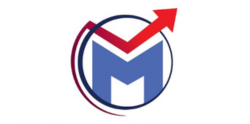How to Use Facebook Ads for Market Research
How to Use Facebook Ads for Market Research: A Comprehensive Guide
Market research is essential for understanding your target audience, identifying market trends, and making informed business decisions. Facebook Ads provide a powerful platform to conduct market research effectively, offering robust targeting options and analytical tools. In this guide, we’ll explore how you can leverage Facebook Ads to gather valuable insights, optimize your marketing strategies, and enhance your business’s success.
Why Use Facebook Ads for Market Research?
Facebook Ads offer several advantages for conducting market research:
- Audience Targeting: Reach specific demographics, interests, behaviors, and locations to gather insights from your target audience directly.
- Cost-Effective: Conduct research campaigns with flexible budgets, minimizing costs compared to traditional research methods.
- Real-Time Data: Obtain real-time feedback and insights that can be immediately analyzed and applied to your marketing strategies.
- Test Marketing Messages: Test different ad creatives, messages, and offers to understand what resonates best with your audience.
Planning Your Market Research Campaign
Before launching your Facebook Ads for market research, it’s essential to define your objectives and plan your approach:
1. Define Research Objectives
- Identify Goals: Determine what specific insights you aim to gain, such as understanding customer preferences, testing product concepts, or evaluating brand perception.
- Formulate Hypotheses: Develop hypotheses or questions that you want to address through your research campaign.
2. Target Audience Definition
- Demographics: Define the demographic characteristics of your target audience, including age, gender, income level, education, etc.
- Psychographics: Consider their interests, lifestyles, values, and purchasing behaviors that may impact their responses.
3. Choose Research Methods
- Surveys: Create Facebook Ads that lead to surveys or questionnaires to gather quantitative data.
- Focus Groups: Use ad campaigns to recruit participants for virtual or in-person focus groups.
- A/B Testing: Test different marketing messages, product features, or pricing strategies to gauge audience preferences.
Implementing Facebook Ads for Market Research
Now, let’s explore practical strategies and tactics for executing your market research using Facebook Ads:
1. Survey Campaigns
- Ad Formats: Use link click ads to drive traffic to a survey hosted on your website or use Facebook’s native form feature for simpler surveys.
- Incentives: Offer incentives such as discounts or exclusive content to encourage survey participation.
2. Audience Insights
- Facebook Audience Insights: Utilize Facebook’s built-in tool to explore demographic and behavioral data of your target audience.
- Custom Audiences: Create custom audiences based on existing customer data or website visitors for targeted research.
3. Competitor Analysis
- Ad Monitoring: Monitor competitors’ Facebook Ads to analyze their messaging, promotions, and audience engagement.
- Ad Library: Utilize Facebook’s Ad Library to study historical ads from competitors and industry leaders.
4. Testing Product Concepts
- Ad Variations: Test different ad creatives showcasing product concepts or prototypes to gauge interest and collect feedback.
- Engagement Metrics: Measure engagement metrics such as likes, comments, and shares to evaluate audience response.
Analyzing and Applying Research Insights
1. Data Analysis
- Quantitative Analysis: Analyze survey responses and engagement metrics to identify trends, patterns, and preferences.
- Qualitative Feedback: Review open-ended responses and qualitative data to gain deeper insights into customer perceptions and opinions.
2. Iterative Optimization
- Iterative Testing: Continuously refine your ad creatives, targeting criteria, and survey questions based on initial findings.
- Feedback Integration: Incorporate research insights into your marketing strategies, product development, and overall business decisions.
Case Study: Successful Market Research Campaign
To illustrate effective strategies, consider the following hypothetical case study:
Case Study: E-commerce Startup
An e-commerce startup wanted to understand consumer preferences for eco-friendly products. They launched Facebook Ads featuring different product images and descriptions to gauge interest levels. Through A/B testing and survey campaigns, they discovered a strong preference for products labeled as sustainable and recyclable, informing their inventory selection and marketing messaging moving forward.
Conclusion
Facebook Ads offer powerful tools for conducting market research, providing businesses with valuable insights into their target audience, competitors, and market trends. By leveraging targeted ad campaigns, surveys, and competitive analysis, you can gather actionable data to optimize your marketing strategies, enhance product offerings, and drive business growth.
Start using Facebook Ads for market research today to gain a competitive edge, understand customer needs, and make informed decisions that propel your business forward in the dynamic marketplace.
Related Posts
Leave a Reply Cancel reply
Categories
MahbubOsmane.com is reader-supported, some products displayed may earn us a commission if you purchase through our links. MahbubOsmane.com is a participant in the Amazon Services LLC Associates Program. Learn more.

